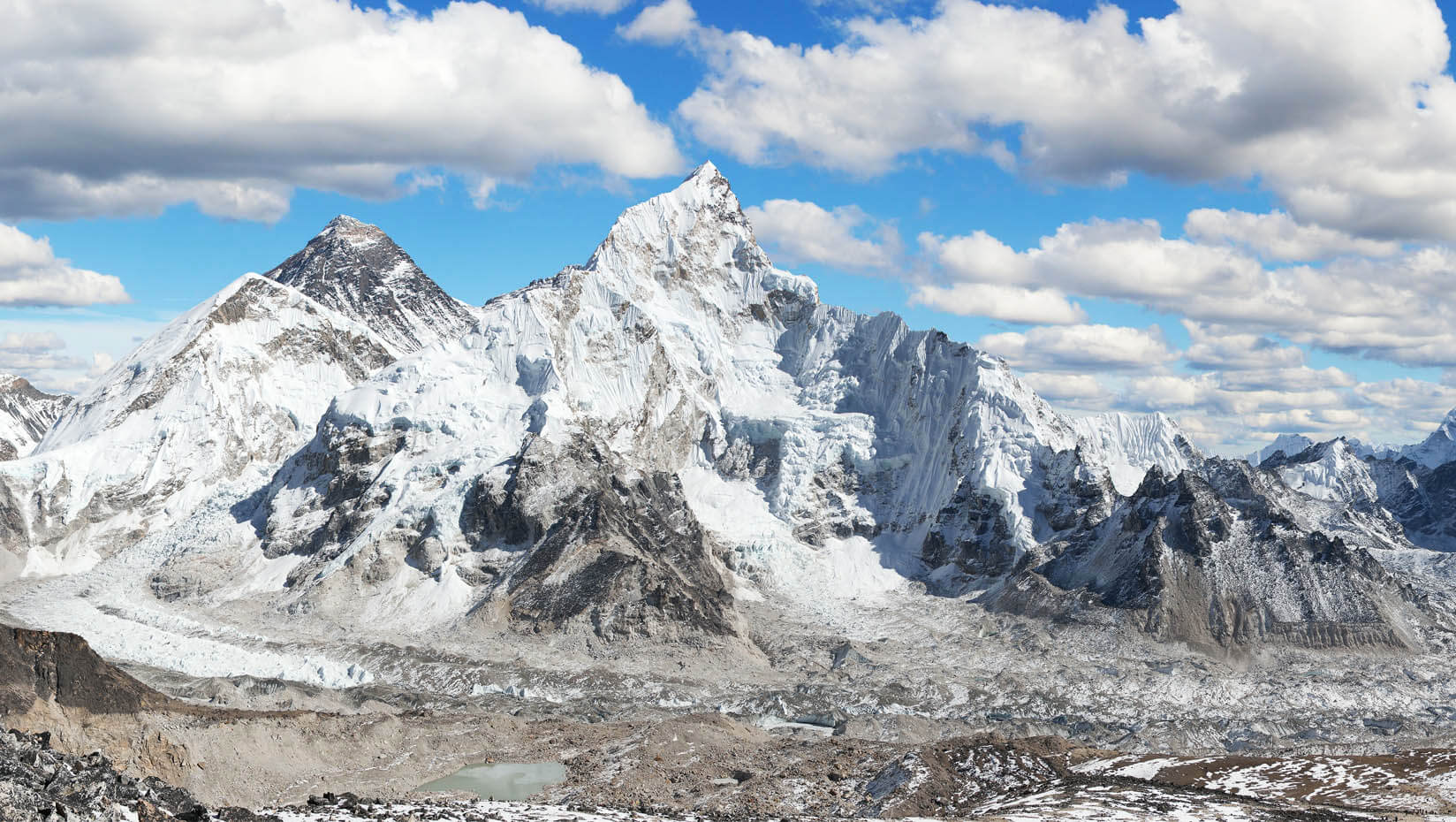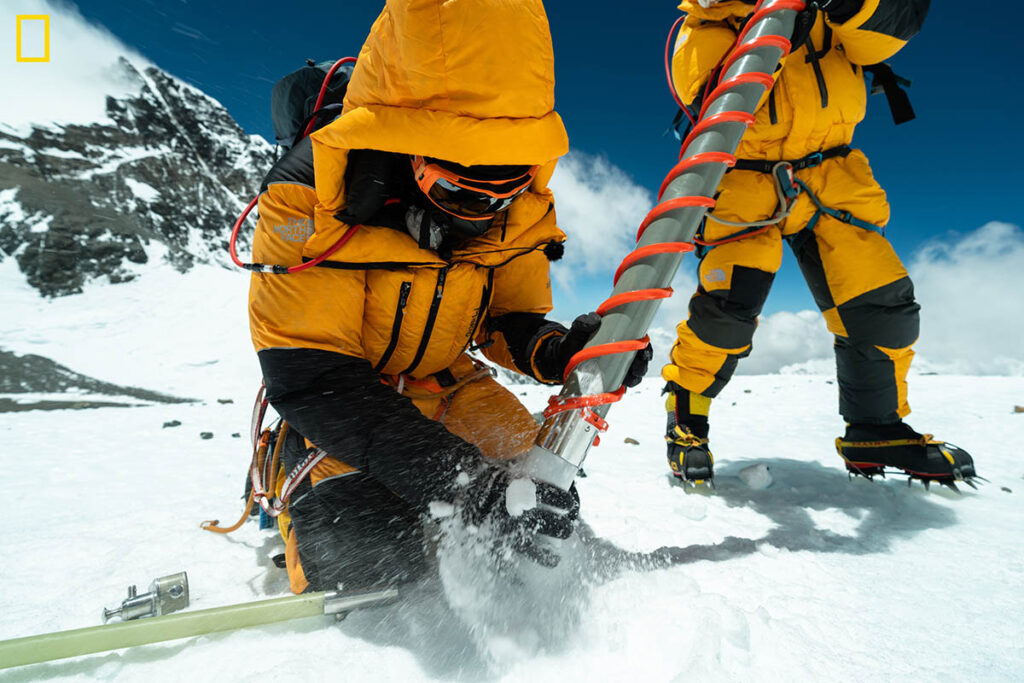
Everest expedition with 6 CCI scientists sets 3 world records
The 2019 National Geographic and Rolex Perpetual Planet Everest Expedition that six Climate Change Institute explorers participated in has set three Guinness World Records.
The three records, featured in the latest edition of the Guinness World Records book, are:
- Highest altitude ice core taken: 8,020 meters (26,312 feet), extracted from the South Col glacier. The complex operation involved a team of more than 30 scientists and Sherpas using a specially modified drill system.
- Highest altitude microplastic found on land: several polymer fibres — most likely from clothing or tents — found at 8,440 meters (27,690 feet). The density was 12 fibres per litre of snow.
- Highest altitude weather station on land: installed at “Balcony,” a ridge situated 8,430 meters (27,657 feet) above sea level. It is the first-ever terrestrial weather station in the “death zone,” which lies above 8,000 meters.

CCI director Paul Mayewski was the expedition’s scientific and expedition lead; assistant professor Aaron Putnam was co-leader of the Geology Team; doctoral student Mariusz Potocki was a member of the Glaciology and Summit teams and collected the record-setting ice core; graduate student Heather Clifford was on the Glaciology Team; and graduate student Peter Strand and then-undergraduate, now graduate student Laura Mattas were on the Geology Team.
The National Geographic Society and Guinness World Records jointly unveiled the three titles Sept. 29.
The record-breaking expedition was the most comprehensive single scientific expedition to Mount Everest in history. The team’s trailblazing research is building understanding and solutions to the impacts of climate change on mountain systems. These glaciers provide critical water resources to more than one billion people who live downstream.
Contact: Beth Staples, beth.staples@maine.edu
